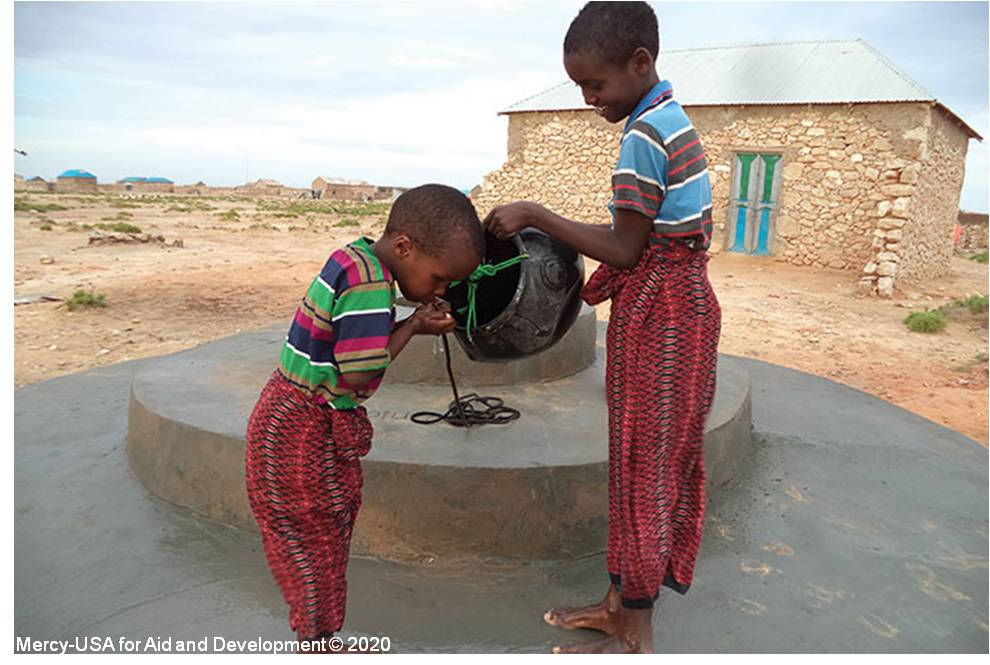Water: An Invaluable BlessingBy Laura El AlamMay 14, 2020 For Muslims, water is integral to our faith. It is, in fact, the source of everything on Earth. In The Qur’an, Allah/God tells us, “And We have made from water every living thing.” (21:30). For Muslims, water is integral to our faith. It is, in fact, the source of everything on Earth. In The Qur’an, Allah/God tells us, “And We have made from water every living thing.” (21:30).Our five daily prayers are all preceded by the ritual of washing our bodies with clean water. Throughout the ages, Islamically-inspired architecture has celebrated water by integrating fountains and reflecting pools that remind us of the beauty, utility, and significance of this fundamental element. Despite its huge importance, many people take clean water for granted. Some have never experienced life without easy access to water for drinking, cooking, washing, bathing, and recreation. While some of us can enjoy an abundance of water in swimming pools, water parks, lakes, and oceans, others must walk several miles each day just to obtain enough water to sustain their family’s basic needs. Ramadan is a time of year that should remind us all how precious every single drop is. That first sip of cool, thirst-quenching water at sunset is a blessing, and we should keep in mind that not everybody has the luxury of turning on a tap and filling their glass with potable water. In fact, lack of clean, safe water is an enormous health hazard that affects billions of people worldwide. According to UNICEF and the World Health Organization, one in three people globally do not have access to safe drinking water. While the problem is most pronounced in sub-Saharan Africa and southern and eastern Asia, it also affects North America. Mexico is one of the top 10 countries with the worst drinking water, and in the United States, more than 2 million Americans do not have access to running water and sanitation. Water shortages around the world have resulted in unconventional methods to more readily access this vital resource. Individual families in such countries as Brazil, Malaysia, Uganda, and Sri Lanka are encouraged to collect rainwater; and in Morocco, a new idea to harvest water from fog using giant nets is based on an ancient system that is ecologically friendly. Communities in East Africa are provided access to underground clean freshwater through the charitable building of conventional wells. What can we do to protect our planet’s precious and irreplaceable water supply? There are many simple steps we can take in our day to day lives to conserve water, such as limiting how much water we use to wash clothes and dishes, flush our toilets, shower and bathe, and water our lawns. Finally, we can consider donating to organizations that help provide safe water to the neediest areas of the world. Islamic Relief USA provides long-term sustainable water solutions globally, with projects in Somalia, Pakistan, and Myanmar. NuDay Syria is a non-profit organization that helps provide clean drinking water to women and children in the most war-ravaged villages of Syria. Charity: Water builds community-owned water projects all over the world. This Ramadan as we fast from dawn to sunset, we should be especially grateful for water. It quenches our thirst and allows us to wash to prevent the spread of diseases. Its importance cannot be underestimated, and those of us who have access to it should help ensure that others do, too. __________ Sources: - “1 in 3 people globally do not have access to safe drinking water – UNICEF, WHO”, World Health Organization. June 18, 2019. - Global WASH Fast Facts. Centers for Disease Control and Prevention. April 11, 2016. - “10 Countries With the Worst Drinking Water” by Deidre McPhillips, U.S. News & World Report. December 19, 2019. - “Closing the Water Access Gap in the United States: A National Action Plan”, George McGraw and Radhika Fox. US Water Alliance. November 2019. - “Water Currents: Water Harvesting Methods”, USAID Water Team. December 12, 2019. - “A Ground-breaking Project: Harvesting Water from Fog”, Dar Si Hmad. 2017. - “The Lasting Impact of Clean Water is Yours to Give”, Mercy-USA for Aid and Development. 2020. |
